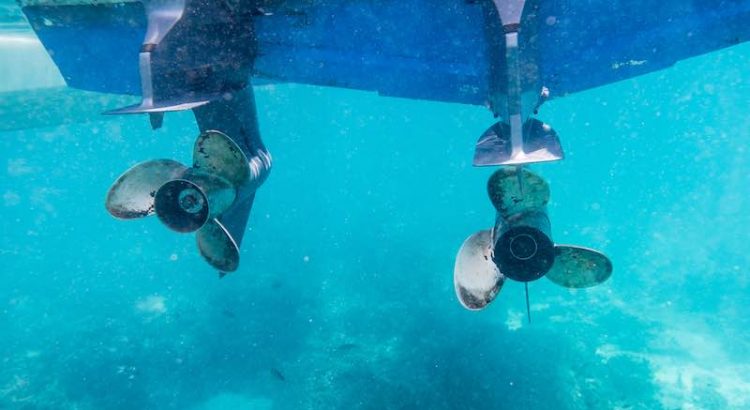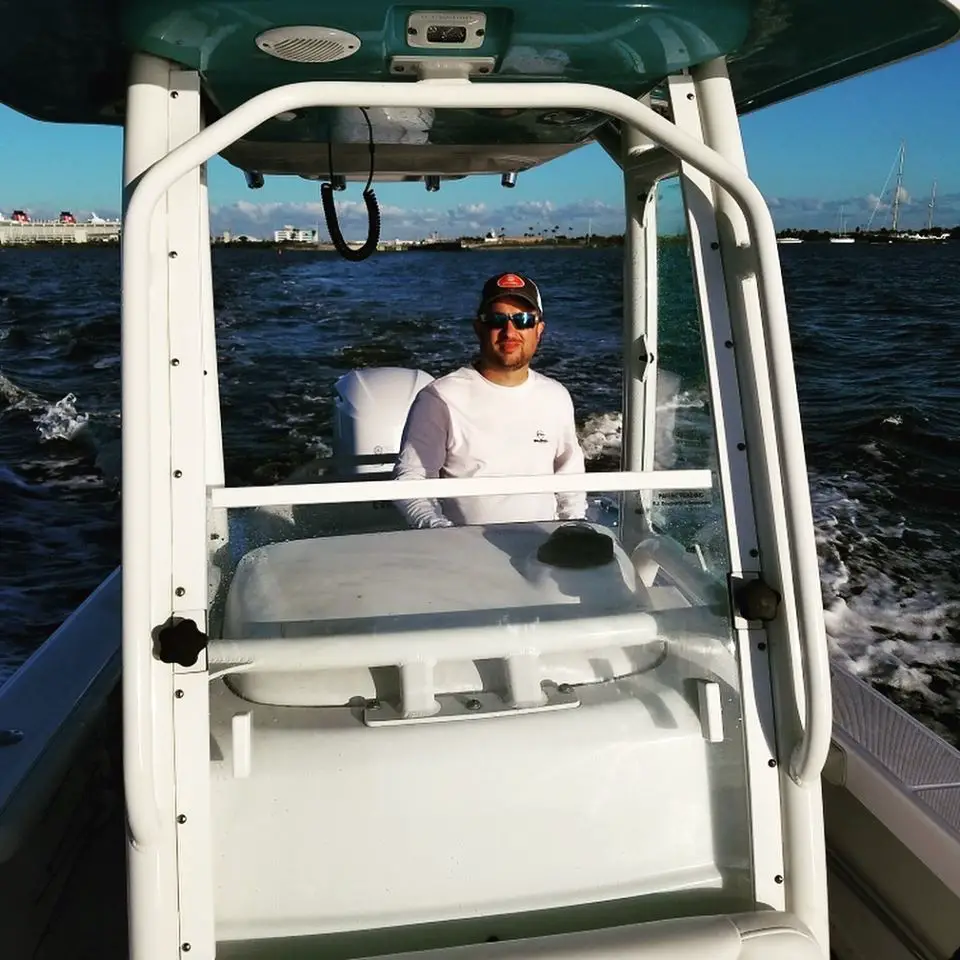This page contains affiliate links. This means that we may get a small commission for recommending products, if you choose to click on something and buy it. This does not cost you anything, but we wanted to be honest and let you know!
(Last Updated On: )Did you know there are more ways to prevent galvanic corrosion from happening on your boat?
When you hear the word corrosion, you probably think about the rustling of iron and steel.
In general, corrosion involves rustling, but in a more specific sense, corrosion means the natural process of converting metals into its more stable form as oxide, hydroxide, or sulfide that leads to deterioration.
Boats and vessel owners deal with corrosion all the time to maintain their property and their investment.
But there are many different types of corrosion. Simple corrosion is easy to solve, but galvanic corrosion is a totally different thing.
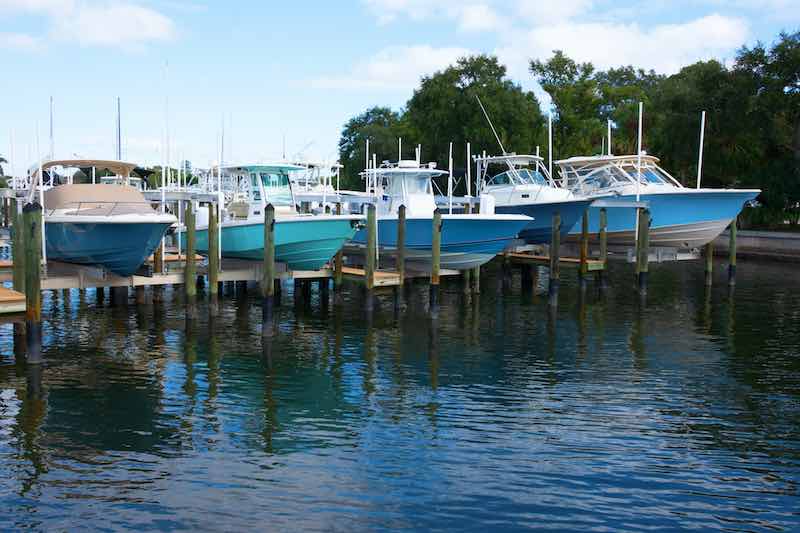
Table of Contents
What is galvanic corrosion?
Galvanic corrosion, or also known as electrolysis, is a damaging factor on a boat. It happens when two metals of different compositions come in contact with each other in seawater.
An example would be a steel shaft and metal propeller. Here, the least noble metal will be the one corrode first. A poorly maintained boat is very prone to this type of corrosion, regardless of its age.
That is why many boat owners seek an expert’s help to prevent this type of corrosion.
Galvanic corrosion happens for several reasons — if it is too much or not enough protective zinc or aluminum blocks in the boat, if the boat came in close contact with boats having electrical issues, or if the protective blocks are painted over.
Apart from the severe damages, boat owners are looking to shed thousands of dollars just to repair the boats damaged by galvanic corrosion.
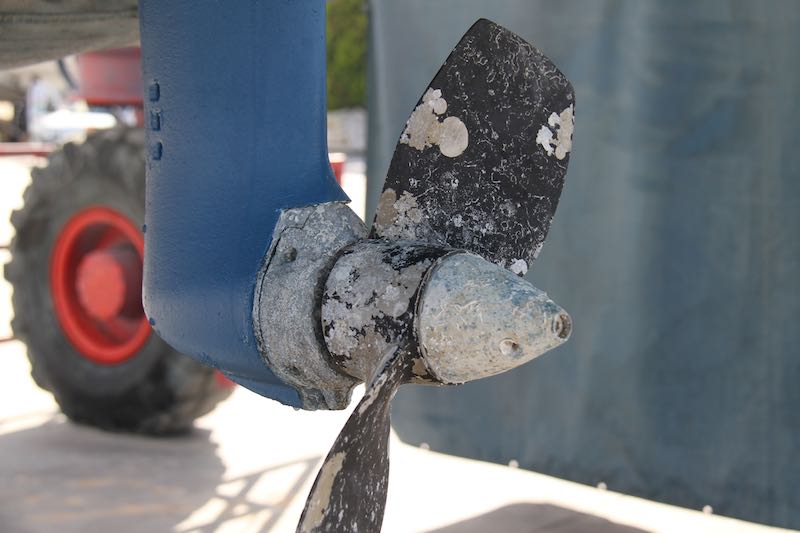
10 Ways to Avoid Galvanic Corrosion
Are there ways to prevent this type of corrosion from happening? Absolutely. Apart from proper maintenance, the right amount of prevention and thorough checking can help. Here are ten surefire ways boat owners can do to prevent it.
1. Ensure that all protective blocks are of the correct material and are applied in the boat correctly.
As stated earlier, too much or not enough protective blocks can cause electrolysis on a boat.
This is why ensuring that the blocks are placed in the correct amount and properly applied is essential. If not, it can cause severe damages to your property and your savings.
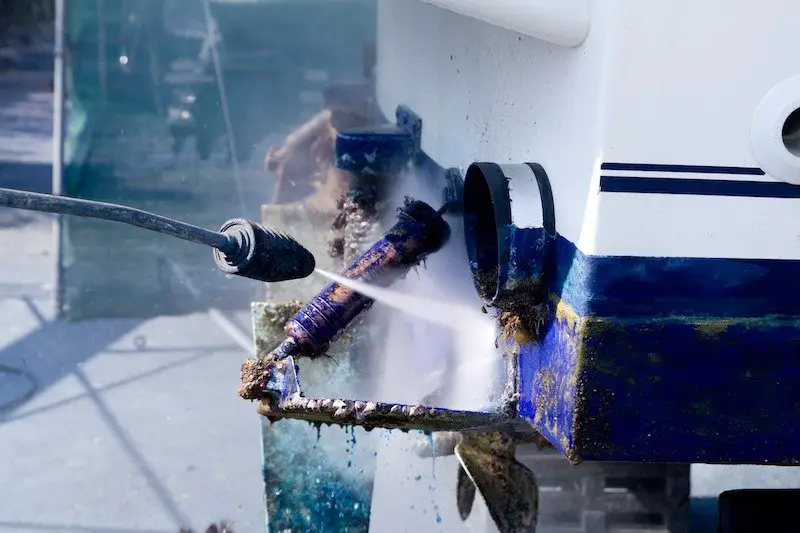
2. Make sure that all the underwater equipment such as propellers, struts, outlet pipes, and sterndrives are adequately grounded.
If this equipment’s wirings are not correctly installed, it can create an unwanted reaction that can lead to galvanic corrosion.
One of the reasons why electrolysis happens is incorrect grounded equipment, so this step should be followed carefully.
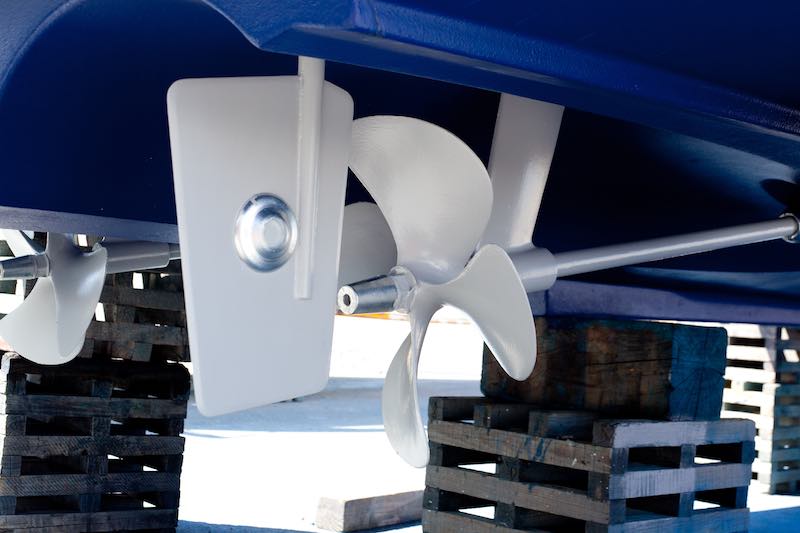
3. Check if the correct level of cathodic protection is used.
Cathodic protection is a process of preventing rust and corrosion from happening in a boat. It happens by converting all anodic sites on the metal’s surface to cathodic sites by creating an electric current.
But even though this cathodic protection can prevent rust and corrosion, it is important to consider the correct level since too much can be damaging.
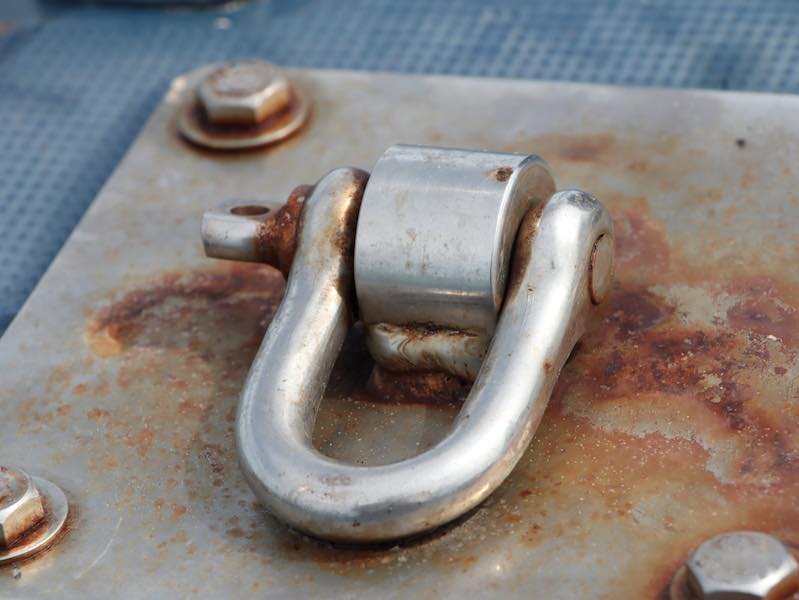
4. The boat’s in water hull potential should be measured in its safe zone.
The water “hull potential” is the amount of all the potentials of metal underwater grounded systems. It is vital to have the right measurement for this one to prevent any damage to the boat.
If the hull potential reading is too negative, it may mean that there is a leak on the boat or one nearby, and this is not a good sign.
5. Check all the wirings on the boat to ensure that switches and all equipment are properly installed.
If nearby boats with electrical issues can cause galvanic corrosion or electrolysis, then issues with your own can create serious problems too.
It is a must to check all the wirings on the boat to prevent any electrical issues because not only can this cause corrosion, it can also cause danger to people on board.
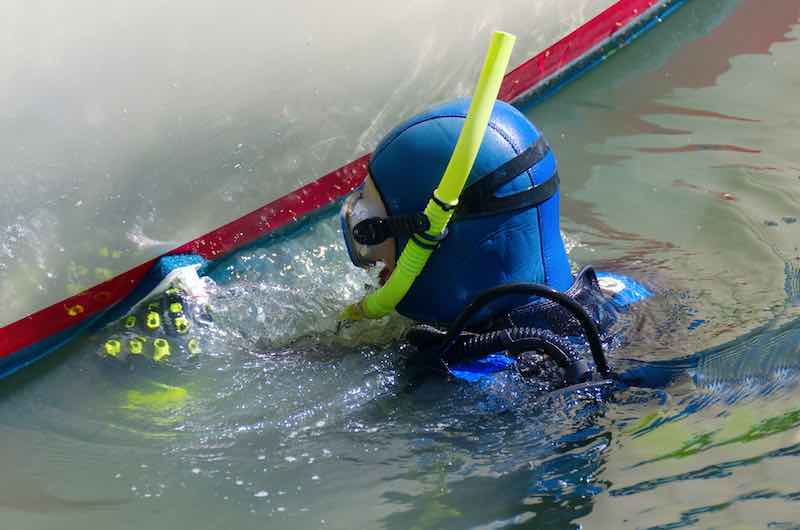
6. Make sure that protective blocks are not painted over or correct paint is used.
One of the reasons why galvanic corrosions occur on boats is that its protective layers are painted over.
Making sure that the right kind of paint is used is of utmost importance since chemical reactions may occur in using the wrong ones.
Fortunately, many paints are available that protect the boat from galvanic corrosion, and experts know better about this.
7. Make sure there is the right amount of zinc or aluminum block.
Zinc and aluminum can cause several reactions if not used properly. These elements require proper use.
That is why it is important to have the right amount of them used on boats because too much or not enough can cause electrolysis or corrosion.
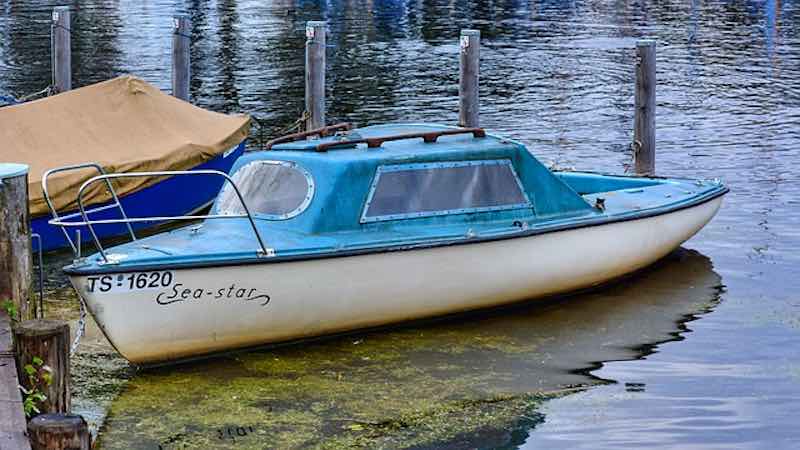
8. As much as possible, stay away from boats that don’t look good.
Galvanic corrosion can also occur because of nearby boats with electrical issues. Electrical reactions can occur if your boat came in contact with a faulty one.
That is why when you see a nearby boat that doesn’t look good. As much a possible, stay away from it so you can avoid electrolysis on yours.
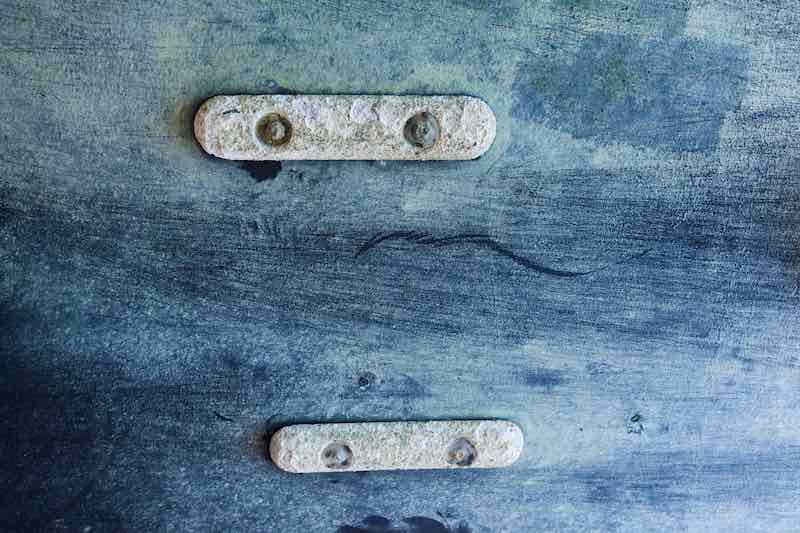
9. Have a sacrificial anode present in your boat.
A sacrificial anode is a piece of metal that can break a reaction between two exposed metals. It is less noble than the two metals that can bond and create galvanic corrosion or electrolysis.
Sacrificial anodes are an important element that can prevent damages to your boat. That is, it is also important to know when to replace it.
10. Install galvanic isolators.
Galvanic isolators or transformer is a piece of equipment for your boat that can protect it from stray currents.
Stray currents can come from shore-based facilities, and when it reaches your boat, it can create an unwanted reaction and cause electrolysis.
These are just ways to avoid or prevent Galvanic corrosion (also known as electrolysis) on your boat.
Though it may seem complicated, it is not harmful to consult experts on the right materials to use on your boat to prevent any danger and damage.
